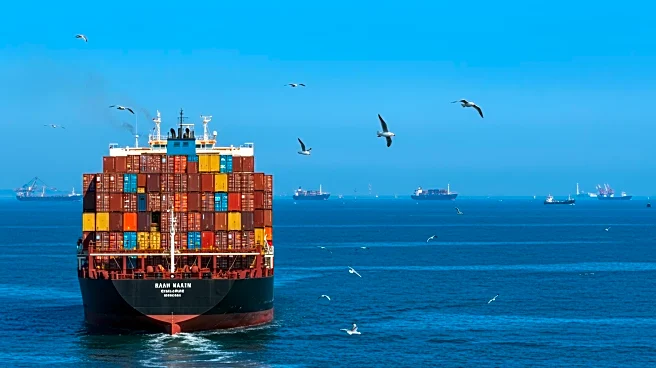What's Happening?
Between January and August 2025, Brazilian iron ore shipments are projected to rise by 4% year-on-year, driven by stronger mining activity. Brazil, the world's second-largest exporter of iron ore, accounts for 23% of global shipments, with Australia leading at 54%. Despite a 1% drop in cargo volume, the increase in Brazilian shipments has positively impacted global tonne mile demand, particularly for the capesize segment. Brazilian cargoes travel significantly longer distances compared to Australian ones, contributing to a 1% year-on-year increase in global tonne mile demand for iron ore. Meanwhile, Chinese iron ore demand has decreased due to a 3% drop in steel production, although steel exports have increased by 11%.
Why It's Important?
The rise in Brazilian iron ore shipments to China highlights shifting dynamics in global trade and shipping. As Brazil increases its exports, it affects the global shipping industry, particularly the capesize segment, which benefits from longer sailing distances. This shift may impact iron ore prices and influence China's import strategies, potentially increasing reliance on foreign ore over domestic production. The changes in shipping patterns also reflect broader economic trends, including China's slowing economic activity and steel demand, which could have implications for global markets and trade policies.
What's Next?
Looking ahead, the start of operations at the Simandou mine in Guinea is expected to boost global iron ore supply and further increase sailing distances, potentially pressuring prices and encouraging China to import more. This development may mitigate losses from declining Chinese steel demand. Additionally, disruptions in Australian, Peruvian, and Indian shipments due to weather and domestic demand may continue to affect global shipping patterns.
Beyond the Headlines
The evolving trade dynamics between Brazil and China could have long-term implications for global shipping routes and economic relationships. As Brazil strengthens its position in the iron ore market, it may influence geopolitical and economic strategies, particularly in relation to China's resource acquisition and infrastructure investments.










